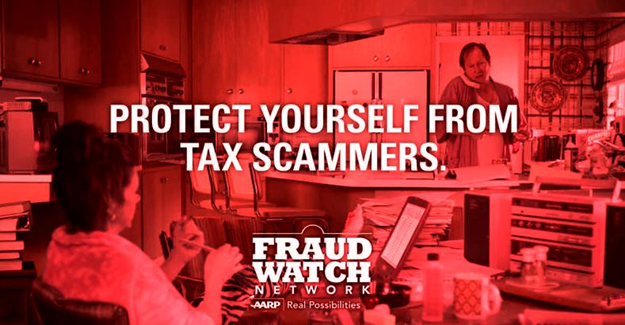AARP Hearing Center

IRS to use Private Debt Collectors for Overdue Taxes
Those Affected Will Hear First From the IRS
By Linda Vitale - Lead Trainer and Educator AARP Arizona Fraud Watch Network
Starting April 2017, the IRS will use private-sector collection agencies to recover overdue unpaid tax debt. Affected taxpayers will ALWAYS first receive an IRS letter and a copy of Publication 4518 “What You Can Expect When the IRS Assigns Your Account to a Private Collection Agency” before they actually transfer a taxpayer’s account over to a private debt collector. However, the IRS will still handle most past due tax debts.
Unfortunately, IRS imposters will attempt to capitalize on the confusion caused by this new policy! The IRS Commissioner, John Koskinen, is “urging taxpayers to be on the lookout for scammers who might use this new program as a cover to trick people.”
AARP’s Fraud Watch Network has been sounding the alarm bells about the IRS Imposter Scam for several years, warning that the IRS will never call or email you to collect past due taxes. Scammers posing as IRS employees, try to collect fictitious unpaid tax debt by making threats and then demanding immediate payment, without giving you a chance to dispute the debt. They also instruct you to send money to them in unusual and untraceable ways. So, be aware that if you do not have an unpaid tax debt, then you should still ignore all phone calls or emails that appear to be from the IRS. The IRS will always contact you first, via a written letter from them.
The IRS has contracted with four agencies, authorized under federal law, to collect long overdue taxpayer debt on the Government’s behalf. Taxpayers that are being assigned to these private agencies, would have had multiple contacts from the IRS in previous years and still have an existing unpaid tax bill. Once the IRS letter is sent, the collection agency will send its own letter confirming the account transfer. Both the IRS letter and the collection firm’s letter, will contain information that will help taxpayers identify that the collection agency calls are legitimate.
Private firms are not authorized to take enforcement actions against taxpayers. Any payment made must be done either electronically or check payable to the U.S. Treasury. If the taxpayer is unable to pay the debt, then the case will be re-assigned back to the IRS for determination as to whether the debt is deemed ‘uncollectible’, or an Offer-in-Compromise is more appropriate.
What You Need To Know: Be aware that it is most likely a scam if the collection agency directs the taxpayer to send payment anywhere other than to the US Treasury. The amount owed must be paid via a check, IRS Direct Pay or IRS Online Payment Agreement. You won’t get a call from a private debt collector unless you have unpaid tax debts going back several years and you’ve already heard from the IRS multiple times! The people included in the new collection program typically already know they have a tax issue. If you don’t have a long overdue past tax debt, then you would not get a call from the IRS or a private debt collector. If you get one of these calls, and you’ve paid your taxes, that’s a sure sign of a scam! You can always go online to look up your tax account to see if you actually do owe back taxes to the IRS by going here: www.irs.gov/balancedue































































